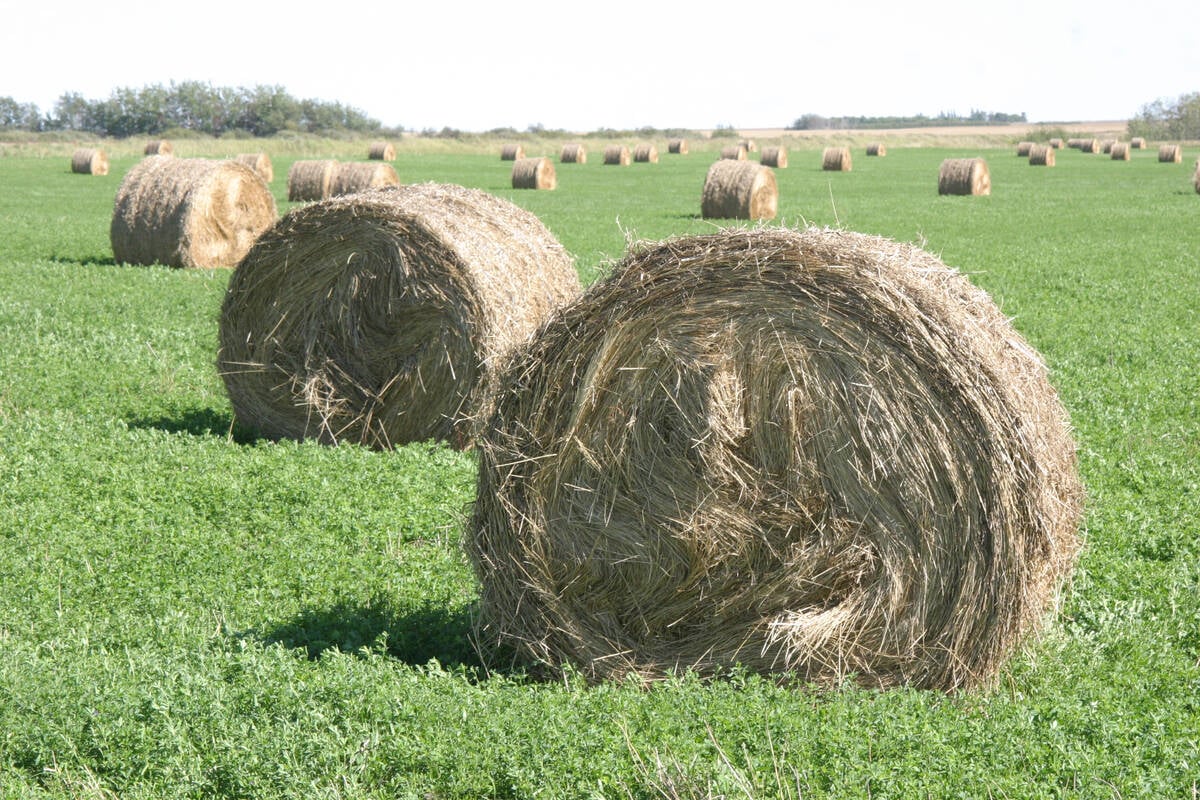Peter Moleski needed a good bull and he knew just where to find one.
He went to the Regina Bull Sale March 19 and bought the supreme champion, a Black Angus, from his brother, John, for $7,100.
Asked if he would have to pay full price, Peter replied, “oh yeah.”
John Moleski said he was surprised when he realized the winning bidder was his brother. At the same time, it made perfect sense.
“He knows the cow family,” John said. “He’s seen what they’ve done.”
Read Also

Breaking down successful winter feeding into six steps
It’s that time of year when it is important to start planning for a cow herd’s winter feeding program. Here are six steps I think are necessary to consider when getting your feed tested.
The Moleski family’s Black Ridge Angus Farm at Dysart, Sask., celebrated 50 years in the purebred livestock business this year.
Steve and Violet Moleski took over from his father, who had come to Canada in 1905, and settled on black cows mainly for their mothering ability.
“Now Johnny’s got a kick at the cat,” said Steve.
Peter and his family have been farming on their own, while John and his partner, Bonnie Pingert, have taken over most of the Black Ridge operation.
They also celebrated a supreme championship in 2001.
John said he believes this year’s judge, Bryce Weiss, was impressed with his bulls’ feet and legs, thickness and frame.
“There are a lot of good bulls in this sale,” he said. “We might not have large numbers but the quality is here.”
There were about 200 bulls consigned to the 102nd annual sale.
While Black Ridge had a successful day in the ring, selling at least four bulls for $5,000 or more, Moleski said he hoped others did as well.
“Everybody needs a good sale here,” he said. “(The purebred business) is no money making, get-rich-quick scheme.”
It’s also important to keep breeders coming back, he added. The business is still recovering from the downturn after BSE closed borders to Canadian cattle.
Holding sales off the farm is not cheap. The Regina facility cost $18,000 to rent for three days and there was grumbling that it didn’t include food service. A mobile concession stand was brought onto the grounds and parked outside the building. One attendee noted that he couldn’t even buy a bottle of water or pop from a machine inside.
Moleski said consignors likely need to get at least $2,000 per animal to cover all their costs.
He added that holding the Spring Steer and Heifer Youth Show before the sale is an opportunity the industry must support to keep the sale going strong in future. Black Ridge bred the champion heifer, exhibited by Chance Jackson of Sedley, Sask.
In the steer class, Carla Schmitt of Arborfield, Sask., showed the champion, a Maine Anjou.
At the bull sale, the top selling Hereford was consigned by Hi-Cliffe Farms of Esterhazy, Sask., and sold for $6,500 to Blaschuck Land & Cattle Co. of Chaplin, Sask.
The high selling Limousin was also the reserve breed champion. The bull consigned by Hi-Way Limousin of Bethune, Sask., sold for $3,700 to Delbert Warren of Ogema, Sask.
Complete sale results were unavailable before Western Producer deadlines on March 19.















